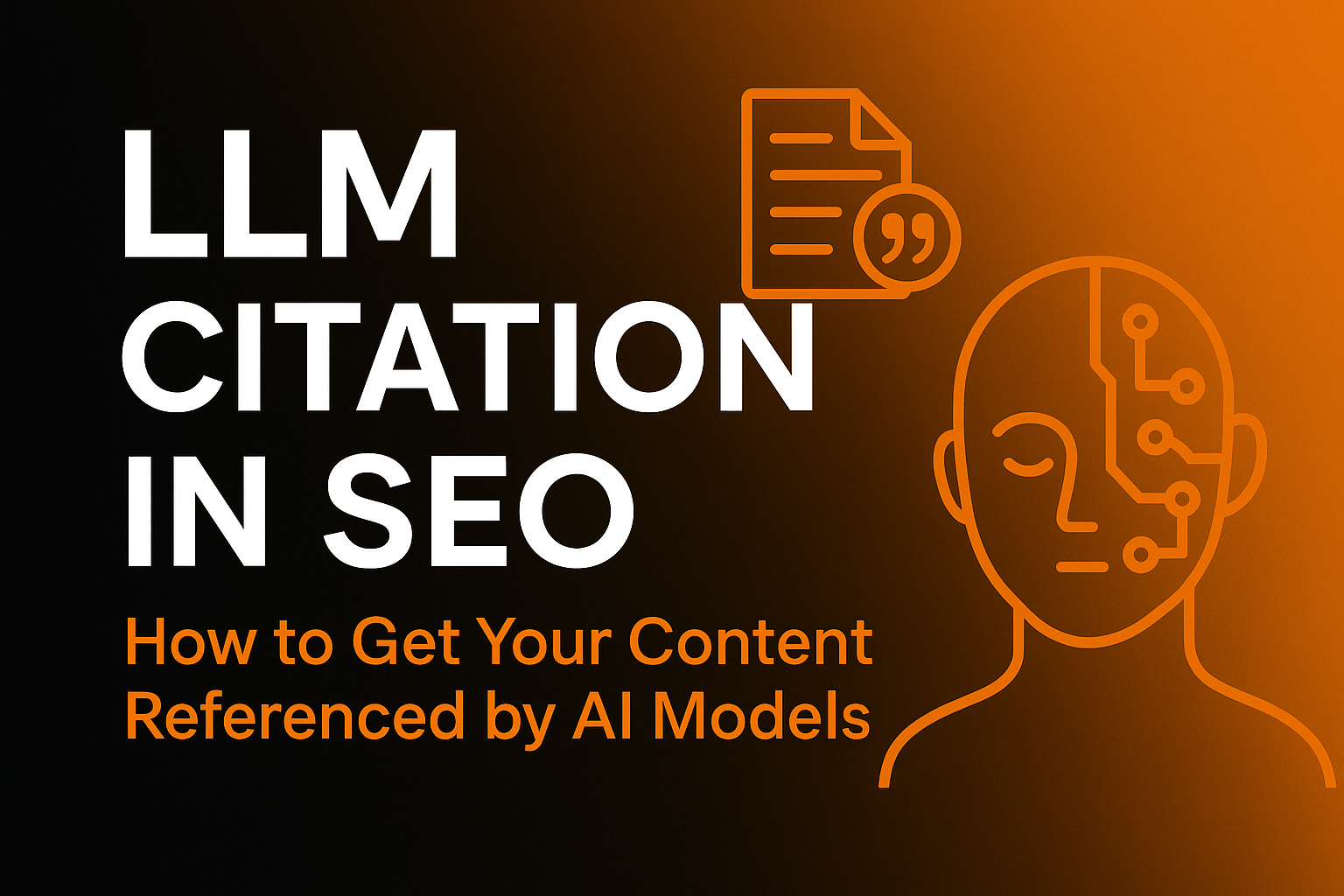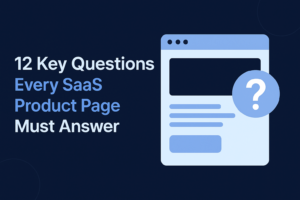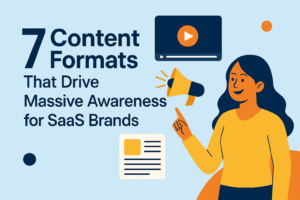The way people search for information is changing fast, especially in the B2B space. Today’s buyers don’t just scroll through traditional search results. They also get answers directly from tools like Google AI Overviews, ChatGPT, Perplexity, and other platforms that summarize content in real time.
According to Gartner, by 2026, nearly 30% of search traffic will come from AI-powered interfaces. For marketers, this means your content needs to do more than just rank, it needs to be good enough to be quoted or referenced directly in these summary-style responses. This growing concept is known as LLM citation.
Think of it like getting featured in a snippet only now, the snippet may appear inside a chatbot or an instant answer box. In this article, you’ll learn what LLM citation means for SEO, why it’s relevant for B2B marketers, and how to prepare your content so it gets noticed and referenced by these new search tools.
What is LLM Citation in SEO?
LLM citation refers to the process by which large language models reference or draw from publicly available content when generating responses. During AI-powered search queries or chatbot interactions, these models often pull summaries, facts, or direct answers from trusted websites. For businesses that rely on organic visibility, LLM citation represents a new form of content discovery. If your website is cited or your content is incorporated into AI-generated responses, your brand becomes visible at critical moments in the buyer journey—sometimes before users even click a traditional search result. While this concept is still emerging, understanding how LLMs select and present content is essential for marketers aiming to stay competitive.
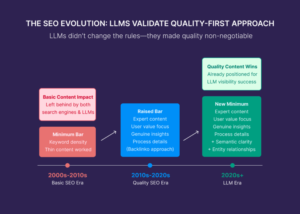
Why LLM Citations Matter for B2B Brands
In competitive industries like B2B SaaS, legal tech, or finance software, the buyer journey often starts with research. Today, that research happens across a mix of sources, including search engines, chatbot responses, and AI-powered summaries.
When a large language model cites your website or content as part of a response, it increases your authority, credibility, and visibility among prospects.
Here are several reasons why earning LLM citations should be part of your SEO strategy:
1. Increased Brand Visibility
Getting cited by platforms like Google AI Overviews or conversational tools means your content shows up earlier in the search experience. Even if users don’t click through immediately, your brand remains part of the information they consume.
2. Trust and Authority
LLMs often favor sources they consider reliable, clear, and well-structured. If your content meets these standards, your brand gains credibility when referenced in AI-generated answers.
3. Influencing Buyer Decisions
Many buyers rely on concise summaries or direct answers to form their initial impressions of a topic. Being cited as part of that answer shapes how prospects perceive your solution.
4. Competitive Advantage
Few companies have optimized for LLM citations, creating an opportunity to get ahead of competitors by producing content designed for AI-driven environments.
Where LLMs Get Their Information
It’s important to understand where large language models get the information they reference in responses. These models are trained on vast amounts of publicly available web content, including websites, forums, published articles, and technical documentation.
For tools like ChatGPT, Microsoft Copilot, and Google Gemini, the responses they generate are influenced by two major factors: the initial training data and the real-time browsing capabilities of these platforms.
ChatGPT (OpenAI)
ChatGPT’s knowledge comes from a combination of licensed data, publicly available web content, and training sources that include websites, academic research, forums, and more. The latest versions of ChatGPT, like GPT-4 Turbo, have access to real-time browsing for premium users. This allows ChatGPT to pull current data from the internet, including search results, knowledge bases, and select websites. Content from authoritative, well-structured sites is more likely to be incorporated into these responses.
Microsoft Copilot
Copilot integrates LLM functionality directly into Microsoft products like Word, Excel, and Bing search. The tool relies on Bing’s web index to generate responses. Websites with strong SEO foundations, structured data, and clear, relevant information have a higher chance of being cited in Copilot responses, especially within Bing’s AI-powered search summaries.
Google Gemini (formerly Bard)
Google’s Gemini uses advanced LLM technology to generate responses across Google products. When users engage with Google AI Overviews, the information comes from Google’s vast index of websites. Google has emphasized that AI Overviews pull from content available in its search index, which means pages optimized for clarity, accuracy, structured data, and expertise are more likely to be referenced.
Other Tools (Perplexity, Anthropic Claude, etc.)
Emerging platforms like Perplexity AI and Anthropic Claude also pull information from public websites and databases. Perplexity, in particular, cites sources directly within its responses, providing visibility for websites that contribute reliable, well-structured content.
Where Do Citations Typically Come From?
Studies by SEO tool providers and independent researchers have shown that LLMs tend to cite:
- Authoritative websites with strong domain ratings
- Industry-specific blogs or resources that demonstrate expertise
- Forums like Reddit, Stack Overflow, or Quora for community-driven knowledge
- News organizations and academic research for trusted information
- Well-optimized websites with structured content and accurate metadata
A 2024 Search Engine Journal report highlighted that over 60% of citations in AI Overviews referenced websites with clear schema markup, accessible language, and strong backlink profiles.
Understanding these patterns helps marketers create content that aligns with LLM citation criteria.
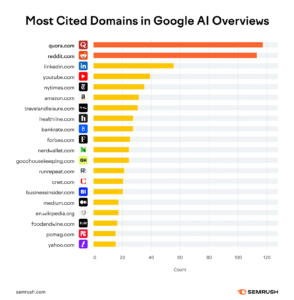
How LLMs Choose What to Cite
Large language models pull from vast amounts of publicly available data, but they tend to favor certain content characteristics. Understanding these selection factors can help marketers create content that is more likely to be referenced.
1. Clarity and Structure
Well-organized, clear content is easier for LLMs to parse and summarize. Content with concise definitions, numbered lists, and structured sections tends to perform better.
2. Authority and Source Credibility
Websites with strong domain authority, relevant expertise, and trustworthy signals are more likely to be referenced. This includes content backed by reputable sources, author credentials, and external citations.
3. Factual Accuracy
LLMs prioritize factual, up-to-date information. Content that is outdated, misleading, or lacking references is less likely to be included in AI-generated responses.
4. Relevance to the Query
Content that aligns directly with the intent behind user queries stands a higher chance of being cited. If your content answers common questions or explains complex topics in plain language, it is more accessible to both searchers and AI tools.
5. Technical Accessibility
Search engines and LLMs rely on technical cues like schema markup, metadata, and page structure to interpret content. Properly formatted websites improve the chances of being accurately referenced.
Practical Steps to Earn LLM Citations
While there is no guaranteed formula, marketers can take deliberate steps to make their content more appealing to AI-driven platforms.
Focus on Answering Buyer Questions
Content that answers direct, commonly asked questions is more likely to be summarized or cited by LLMs. For example, a blog post titled “What is finance management software?” that provides a clear, plain-language answer at the beginning increases the chances of being referenced.
Structure Content for Easy Extraction
Breaking content into organized sections, using subheadings, lists, and concise paragraphs, improves readability and makes it easier for AI tools to identify relevant information. Including TL;DR summaries at the top of long-form content provides additional opportunities for your information to be pulled into AI responses.
Prioritize Accuracy and Citations
LLMs prefer sources that provide verifiable, accurate information. Support your content with up-to-date data, industry references, and links to credible third-party sources to boost your trustworthiness.
Implement Schema Markup
Adding structured data through schema markup helps search engines and AI systems understand your content better. FAQ schema, How To schema, and Product schema increase the visibility of specific sections in search results and AI-generated answers.
Strengthen Domain Authority
Building your website’s overall authority through consistent, high-quality content, reputable backlinks, and technical SEO best practices improves the likelihood of being recognized by AI models as a reliable source.
Common Mistakes to Avoid
Many businesses overlook opportunities for LLM citations by producing content that lacks structure, clarity, or authority signals. Common mistakes include:
- Burying answers deep within long paragraphs rather than providing clear summaries upfront
- Failing to use schema markup, making it harder for search engines to interpret page content
- Publishing generic, unoriginal content that does not add unique value or demonstrate expertise
- Overlooking the importance of source credibility by failing to include references, author bios, or data-backed claims
By addressing these pitfalls, marketers can increase the chances of their content being recognized and referenced by AI systems.
LLM Citations and the Future of SEO
As AI-generated search experiences become more common, LLM citations will play a growing role in shaping brand visibility. SEO is no longer limited to ranking for keywords on a search results page. Today, earning a place in AI-generated answers, conversational search tools, and summary boxes is equally important.
For B2B marketers, this requires a shift in content strategy, focusing on providing clear, accurate, and well-structured information that aligns with buyer questions and research habits.
Organizations that adapt their content for LLM citation stand to gain increased visibility, improved authority, and greater influence in early-stage buyer research.
Preparing Your SEO Strategy for LLM Citations
The way people search for information is changing. Instead of reading long lists of links, many now rely on quick answers and summaries during their research.
To stay visible, your content must be clear, well-structured, and easy to trust. When you focus on simple explanations and strong sources, your pages are more likely to be referenced by modern search platforms.
This approach is no longer optional. If you want to stand out online, you need to write content that helps readers find answers fast. Businesses that start now will reach their audience earlier, build trust, and guide more people through their decision process.
LLM Citation & SEO: Your Top Questions Answered
1. What is LLM citation in SEO?
LLM citation refers to when content from your website is referenced by large language models (LLMs) like ChatGPT, Google Gemini, or Microsoft Copilot in their generated responses. It’s becoming a key visibility factor in modern SEO.
2. How do large language models decide what content to cite?
LLMs favor content that is clear, well-structured, and published on authoritative websites. Pages with schema markup, accurate facts, and user-centric formatting are more likely to be cited.
3. Which platforms use LLM citations in their search results?
Google AI Overviews, Bing Copilot, ChatGPT with browsing, Perplexity AI, and Anthropic Claude all use citation mechanisms to pull data from trustworthy sources.
4. How can I optimize my content to be cited by tools like ChatGPT or Gemini?
Start with concise answers to common questions, use schema markup (like FAQ and HowTo), cite trustworthy sources, and format your content using subheadings, lists, and TL;DR sections.
5. Is LLM citation replacing traditional SEO?
No, it complements SEO. Ranking in search results is still important, but being cited in AI-generated summaries is now a parallel opportunity for visibility and trust.
6. What type of content is most likely to earn citations from AI tools?
Authoritative blogs, product pages with structured data, educational resources, and FAQ hubs are commonly referenced by LLMs especially if they’re updated regularly and provide expert insight.
7. Can I track whether my content is being cited by AI tools?
Some platforms like Perplexity show source citations directly. However, tracking LLM usage is still developing. Monitoring referral traffic, search impressions, and testing queries in AI tools can help.

vetrivel is an accomplished SEO and digital marketing expert with 5 plus years of experience. dedicated to providing readers with informative and engaging content.

